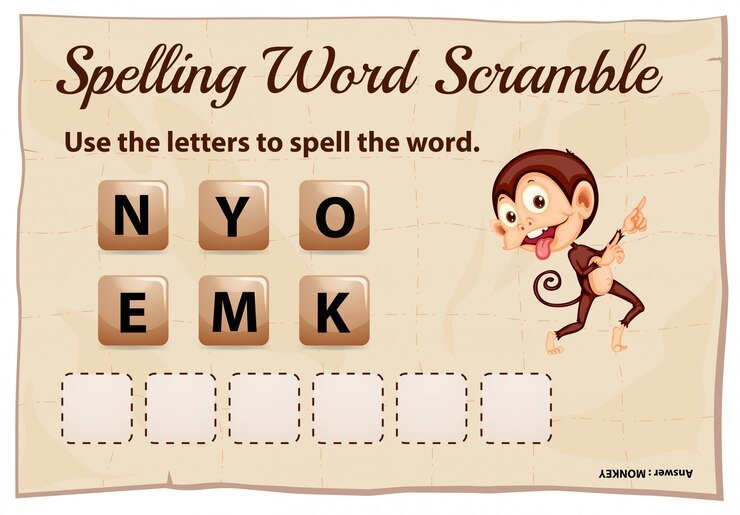Mastering the Art of wordplay: A Guide

Introduction wordplay
From Shakespeare’s puns to modern-day memes, wordplay has always enchanted those who appreciate the beauty of language. But what makes wordplay so powerful? This blog post dives into the magnetic allure of wordplay, exploring its impact on our brains and emotions. We’ll also provide practical tips for incorporating wordplay into your writing and highlight its significance in various forms of content creation.
By the end of this article, you’ll have a deeper understanding of how mastering wordplay can elevate your communication skills, boost your creativity, and even enhance your content’s SEO value. Ready to play with words? Let’s get started.
The Psychological Impact of Wordplay
Wordplay isn’t just fun; it’s a powerful cognitive tool that engages the brain in unique ways. When we encounter a pun or a clever twist of phrase, our brains light up with activity.
Engaging the Reader’s Mind
Why do we find wordplay so appealing? It forces our brains to make connections between seemingly unrelated concepts. This mental gymnastics not only entertains but also helps improve cognitive flexibility and creative problem-solving skills.
Emotional Resonance
Wordplay often evokes strong emotional reactions. A well-placed pun can make us laugh, while a clever metaphor can bring tears to our eyes. By tapping into these emotional responses, writers can create content that resonates deeply with their audience.
Enhancing Memory Retention
Studies have shown that wordplay can improve memory retention. When information is delivered in a playful or unexpected way, it’s more likely to stick in our minds. This is why advertising slogans and memorable quotes often rely on wordplay.
A Historical Overview of Wordplay
Wordplay is a universal phenomenon that transcends cultures and languages. Throughout history, writers and speakers have used clever language to entertain, persuade, and inform.
Ancient Civilizations
The earliest records of wordplay date back to ancient civilizations. In Ancient Egypt, hieroglyphics were often used in playful ways to convey double meanings. Similarly, the Greeks and Romans delighted in creating puns and riddles.
The Renaissance Era
The Renaissance was a golden age for wordplay. Playwrights like Shakespeare and poets like John Donne used puns, metaphors, and wordplay to add depth and humor to their works. Shakespeare’s plays are filled with witty exchanges and clever wordplay that continue to captivate audiences today.
Modern Times
In the 20th and 21st centuries, wordplay has found new life in advertising, literature, and digital media. From catchy slogans to viral memes, creative language continues to capture our attention and imagination.
Practical Tips for Incorporating Wordplay

Ready to start playing with words in your writing? Here are some practical tips to get you started.
Start with Puns
Puns are one of the simplest forms of wordplay. They rely on the multiple meanings of words or similar-sounding words to create humor or insight. For example, “Time flies like an arrow; fruit flies like a banana.” Experiment with puns to add a playful touch to your writing.
Use Metaphors and Similes
Metaphors and similes are powerful tools for creating vivid imagery and making abstract concepts more relatable. A metaphor directly compares two unrelated things, while a simile uses “like” or “as” to make the comparison. For example, “Her smile was a beacon of hope in the stormy sea of his life.”
Experiment with Alliteration and Assonance
Alliteration (the repetition of consonant sounds) and assonance (the repetition of vowel sounds) can add a musical quality to your writing. For example, “Peter Piper picked a peck of pickled peppers” uses alliteration, while “The rain in Spain stays mainly in the plain” uses assonance.
Case Studies of Successful Wordplay
Wordplay isn’t just for fun; it can be a powerful tool for achieving real-world success. Here are some case studies that highlight the impact of creative language.
Advertising
One of the most famous examples of wordplay in advertising is the slogan for the fast-food chain, Burger King. “Have it your way” is a clever play on words that emphasizes customer choice and personalization. The slogan has been highly successful in attracting customers and building brand loyalty.
Literature
In literature, wordplay can add depth and complexity to a story. For example, in Lewis Carroll’s “Alice’s Adventures in Wonderland,” the character of Humpty Dumpty delights in playing with words, saying, “When I use a word, it means just what I choose it to mean—neither more nor less.” This playful approach to language adds a whimsical, surreal quality to the story.
Social Media
Social media platforms are fertile ground for wordplay. A tweet from a popular brand that cleverly plays with words can go viral, reaching millions of people. For example, Oreo’s tweet during the 2013 Super Bowl blackout, “You can still dunk in the dark,” was a perfect blend of timely humor and wordplay that resonated with audience members.
The SEO Value of Wordplay
Beyond its entertainment value, wordplay can also enhance your content’s SEO performance. Here’s how.
Increasing Engagement
Engaging content is more likely to be shared, liked, and commented on, which can improve your website’s search engine ranking. Clever wordplay can make your content more enjoyable and engaging, encouraging readers to interact with it.
Enhancing Readability
Search engines prioritize content that is easy to read and understand. By using wordplay to simplify complex concepts and make your content more accessible, you can improve your site’s SEO performance.
Boosting Keyword Usage
Incorporating relevant keywords into your wordplay can help improve your content’s visibility. For example, if you’re writing about “creative language,” you might use a pun like, “Unlock the door to creative language with these wordplay tips.” This not only adds humor but also naturally integrates your targeted keywords.
Conclusion
Creativity in language is more than just fun and games; it’s a powerful tool for effective communication. Whether you’re writing a novel, crafting an advertisement, or creating content for social media, wordplay can elevate your work and captivate your audience.
By understanding the psychological impact of wordplay, learning from historical examples, and applying practical tips, you can harness the magic of creative language in your writing. And don’t forget the added bonus—improved SEO performance!




